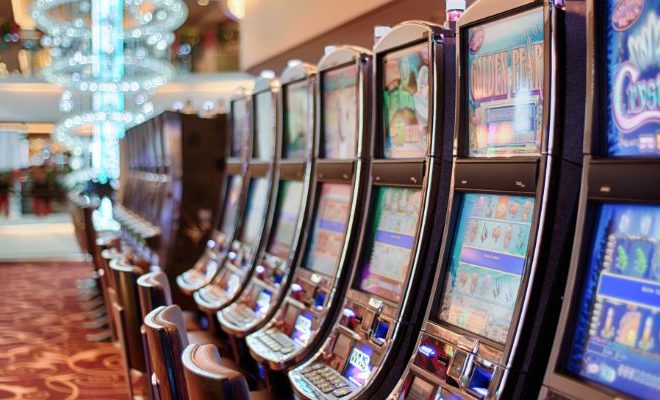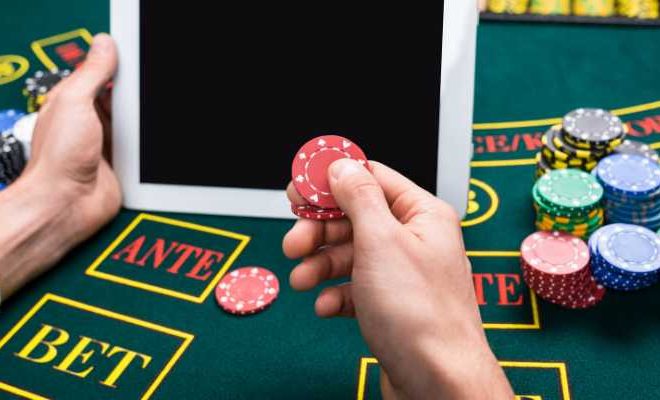
Understanding Casino Maths The House Edge Explained
Casinos have always been a popular form of entertainment, whether it’s in the bright lights of Las Vegas or the comfort of your own home through online casinos. With the rise of technology, gambling has become more accessible to people all around the world, making it a billion-dollar industry. But what exactly is casino maths and why is it important for players to understand? In this article, we will delve into the concept of casino maths and how it affects players and their chances of winning.

Understanding the Basics of Casino Maths
What is Casino Maths?
Casino maths, also known as casino mathematics or gaming mathematics, is the study of mathematical concepts applied to casino games. It involves understanding the odds and probabilities of different outcomes in casino games, such as roulette, blackjack, and slot machines. The main goal of casino maths is to help players understand the likelihood of winning and losing in a game, as well as the impact of various factors on their chances.
The concept of casino maths has been around for centuries, with famous mathematicians such as Blaise Pascal and Pierre de Fermat contributing to its development. In the 17th century, French mathematician Blaise Pascal invented the roulette wheel while trying to create a perpetual motion machine. His colleague Pierre de Fermat then developed the theory of probability, which has become an essential part of casino maths.
How Does it Work?
Casino maths uses mathematical equations and formulas to determine the probability of certain outcomes or events in a casino game. These equations take into account various factors, such as the number of players, the rules of the game, and the betting options available. With this information, players can make informed decisions while playing and improve their chances of winning.
One of the most common equations used in casino maths is the Binomial Distribution formula, which calculates the probability of a specific outcome occurring after a certain number of trials. For example, it can be used to determine the probability of getting a blackjack in a game of blackjack after drawing a certain number of cards.
Importance of Knowing Casino Maths
Knowing casino maths is crucial for any player who wants to have a better understanding of the games they are playing. By understanding the odds and probabilities, players can make informed decisions when placing bets, managing their bankroll, and choosing which games to play. It also helps players develop strategies and techniques to improve their chances of winning against the house edge, which we will discuss in the next section.
The House Edge Explained
Definition of House Edge
House edge, also known as the casino advantage, is a mathematical advantage that casinos have over players in any game. It is expressed as a percentage and represents the average amount of money that the casino will win from a player’s bet over time. For example, if a game has a house edge of 5%, it means that for every $100 wagered, the casino will make a profit of $5 on average.
Different casino games have different house edge percentages, with some games having a lower house edge than others. In general, games with more complicated rules and strategies tend to have a higher house edge, while games with simpler gameplay have a lower house edge. This is why it is essential for players to understand the concept of house edge and how it affects their chances of winning.
Calculating House Edge
To calculate the house edge, you need to know the odds of winning and the payout for a particular bet. The formula for calculating house edge is:
(Probability of Winning x Payout for Winning) – (Probability of Losing x Amount Lost)
Let’s use an example of a game of roulette to illustrate this. In American roulette, there are 38 numbers (1-36, 0, 00) on the wheel, and the payout for betting on a single number is 35:1. Therefore, the probability of winning is 1/38 or 2.63%. Using the formula above, the house edge for this bet would be:
(0.0263 x 35) – (0.9737 x 1) = -0.0526%
This negative percentage indicates that the player has a slight advantage over the casino in this particular bet. However, it’s important to note that the house edge is calculated over a long period, and in the short term, anything can happen.
Examples of House Edge in Popular Casino Games
- Blackjack – House Edge: 0.5% – 1%
Blackjack has one of the lowest house edges of any casino game, making it a popular choice among players. The house edge can vary depending on the rules of the game and the number of decks used, but generally, it ranges from 0.5% to 1%. This means that for every $100 wagered, the casino will make a profit of only 50 cents to $1 on average.
- Baccarat – House Edge: 1.06% (banker bet) or 1.24% (player bet)
Baccarat is a simple game with straightforward rules, making it a favorite among high rollers. The house edge for the banker bet and player bet is relatively low, at 1.06% and 1.24%, respectively. However, the tie bet has a significantly higher house edge of 14.36%, so it should be avoided.
- Roulette – House Edge: 2.70% (European) or 5.26% (American)
Roulette is another popular casino game that comes in two variations – European and American. The European version has 37 numbers (1-36, 0) while the American version has an additional 00, resulting in a higher house edge of 5.26%. The best bet in roulette is the even-money bets (red/black, odd/even, high/low), which have a lower house edge of 2.70%.
- Slot Machines – House Edge: 2% – 15%
Slot machines, also known as pokies, are the most played casino games, both online and in land-based casinos. The house edge for slot machines can vary widely, with some games having a house edge as low as 2%, while others can go up to 15%. The average house edge for slot machines is around 5%, making it higher than most table games.
Impact of House Edge on Players

Higher House Edge vs. Lower House Edge Games
As mentioned earlier, different casino games have different house edge percentages. Games with a higher house edge give the casino a bigger advantage over players, making it harder for them to win. On the other hand, games with a lower house edge offer players better chances of winning. However, this doesn’t necessarily mean that players should stick to low house edge games only.
Some players might prefer games with a higher house edge because they offer more excitement and potential for big wins. It’s essential for players to balance their preferences and chances of winning when choosing which games to play.
How House Edge Affects Player’s Bankroll
The house edge has a significant impact on a player’s bankroll, whether they are playing at a land-based or online casino. With a higher house edge, players are more likely to lose money quicker, which means they need to have a larger bankroll to sustain their gameplay. This is why proper bankroll management is vital for any player who wants to prolong their gaming experience and improve their chances of winning.
Strategies for Dealing with House Edge
While the house edge is an inevitable part of casino games, there are some strategies that players can use to minimize its impact. These include:
- Understanding the rules and odds of the game
- Choosing low house edge games
- Taking advantage of bonuses and promotions
- Practicing proper bankroll management
By following these strategies, players can make better decisions when playing and improve their chances of coming out ahead.
Other Factors Affecting Casino Maths
Apart from the house edge, there are other factors that players need to consider when it comes to casino maths. These include variance, payout percentages, and return to player (RTP) rates.
Variance
Variance, also known as volatility, is a measure of how much a player’s winnings will vary in the short term. High variance games have a higher risk of losing money quickly but offer the potential for big wins, while low variance games offer smaller but more frequent wins. Players should take note of a game’s variance before playing to determine if it aligns with their risk tolerance.
Payout Percentages
Payout percentages, also known as payback percentages, are another crucial factor in casino maths. It refers to the percentage of all wagers that a game will pay back to players over time. For example, a game with a payout percentage of 95% means that players can expect to get back $95 for every $100 wagered. Payout percentages can vary between games and even within the same game at different casinos.
Return to Player (RTP) Rates
Return to Player (RTP) rates are similar to payout percentages, but they only measure the expected return for a specific bet or bet type. For instance, a slot machine might have an overall RTP of 96%, but the RTP for a specific bonus round might be lower. Players should check the RTP rates for different bets or games to make informed decisions when playing.
Tips for Improving Your Chances Against the House Edge
While the house edge is an inevitable part of casino games, there are some tips that players can use to improve their chances of winning against it. These include:
- Choosing Low House Edge Games – As mentioned earlier, low house edge games offer players better chances of winning. It’s essential to research and choose games with the lowest house edge possible.
- Taking Advantage of Bonuses and Promotions – Many online casinos offer bonuses and promotions that can give players an extra edge. These can include free spins, deposit bonuses, and cashback offers.
- Practice Proper Bankroll Management – A player’s bankroll is their lifeline in a casino, so it’s crucial to manage it properly. This includes setting a budget, sticking to it, and knowing when to stop playing.
- Learn Basic Strategy – Games like blackjack have basic strategies that have been proven to reduce the house edge. By learning and implementing these strategies, players can improve their chances of winning.
Online Casinos and House Edge

With the rise of online casinos, the concept of house edge has become even more crucial for players to understand. Online casinos use Random Number Generators (RNGs) to determine the outcomes of their games, which ensures fair gameplay for both the player and the casino. However, this also means that the house edge is fixed and cannot be altered by the casino.
How Online Casinos Determine House Edge
Online casinos use the same mathematical formulas and equations as land-based casinos to determine the house edge for their games. They also provide information on the house edge for each game, making it easier for players to choose which games to play.
Advantages of Playing at Online Casinos
Online casinos offer many advantages over traditional land-based casinos, and the house edge is one of them. With lower operating costs, online casinos can offer lower house edge games compared to land-based casinos. They also offer a wider variety of games, including some with extremely low house edges, such as video poker.
Disadvantages of Playing at Online Casinos
While there are many benefits of playing at online casinos, there are also some drawbacks to consider. One of the main disadvantages is the lack of social interaction, which is a vital aspect of the casino experience for many players. Additionally, fraudulent online casinos do exist, which is why it’s essential to choose reputable and licensed online casinos to ensure a fair gaming experience.
Conclusion
Understanding casino maths, particularly the concept of house edge, is crucial for any player who wants to have a better chance of winning in a casino. By knowing the odds and probabilities, players can make informed decisions when playing, manage their bankroll properly, and improve their chances against the house edge. With the rise of technology, online casinos have made gambling more accessible to people worldwide, and understanding casino maths has become even more important for players. By following the tips and strategies outlined in this article, players can make the most out of their casino experience and hopefully come out ahead against the house edge.


